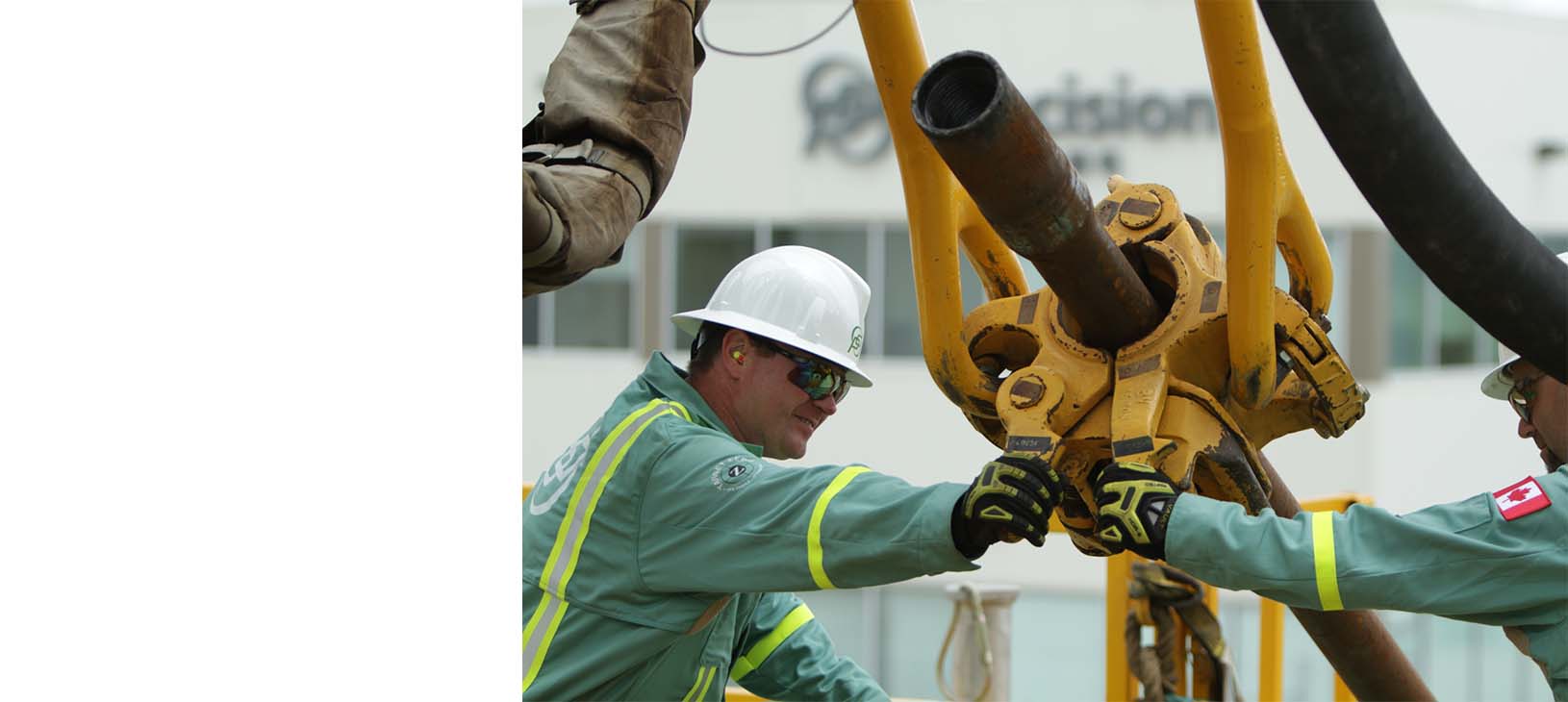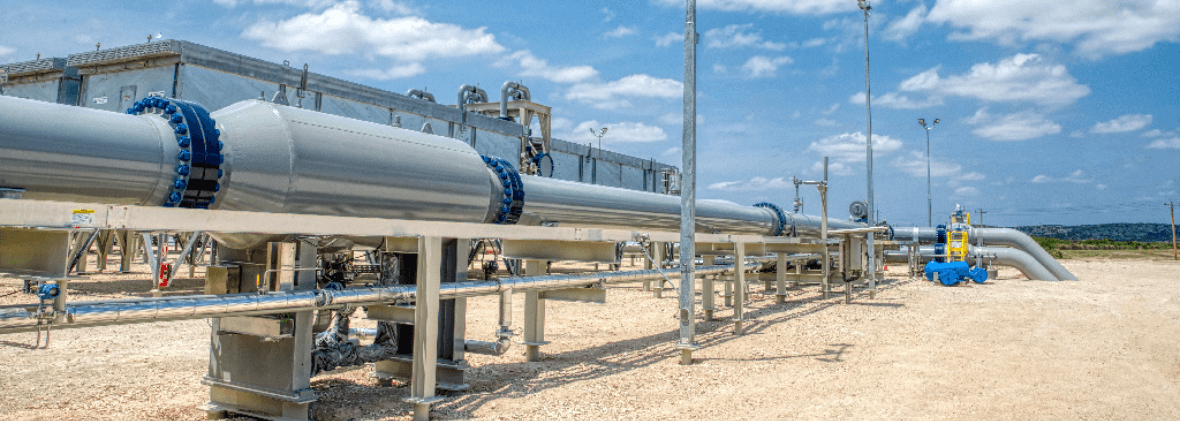Superior Rentals near me: proven strategies for choosing the right partner
A Comprehensive Guide to the Numerous Kinds Of Oil Field Equipment and Pipeline Equipment Available
The oil and gas industry counts heavily on specialized equipment for reliable extraction and transport. Different kinds of equipment, from drilling rigs to storage tanks, play important functions in this complex procedure. Each tool offers distinct functions that add to general operational success. Understanding these elements is essential for anyone associated with the market. As the industry evolves, so also do the technologies that support it. What innovations are on the horizon?

Drilling Rigs: The Backbone of Oil Exploration
Drilling rigs offer as the necessary machinery in the domain name of oil expedition, allowing firms to access hydrocarbon gets hidden deep under the Planet's surface area. These rigs come in various kinds, including land rigs, offshore rigs, and mobile devices, each created to operate in certain environments. Geared up with advanced modern technology, piercing rigs can pass through geological developments with accuracy, ensuring effective resource extraction. The architectural stability and functional capabilities of these rigs are important, as they have to withstand severe problems and considerable pressures. The option of a drilling gear influences the overall job expense and timeline, making it a vital factor to consider for oil business seeking to enhance their expedition initiatives and make best use of performance in their operations.
Pumps: Vital for Fluid Activity
In the oil extraction process, the duty of pumps is considerable, helping with the activity of fluids throughout various phases of manufacturing. Pumps are necessary for carrying petroleum, water, and other liquids from below ground tanks to the surface and afterwards through pipes to refineries. They come in various types, consisting of centrifugal, positive displacement, and submersible pumps, each offering certain purposes based on the liquid characteristics and functional demands. Centrifugal pumps are generally used for their efficiency in high-flow applications, while positive displacement pumps master taking care of thick liquids. The choice of pump effects general effectiveness, functional safety and security, and maintenance prices. Correct selection and maintenance of pumps are essential for optimizing manufacturing and decreasing downtime in oil area operations.
Shutoffs: Managing Circulation and Pressure

Valves play an important duty in taking care of the circulation and pressure of liquids within oil fields and pipelines. Various kinds of shutoffs offer unique applications, each designed to accomplish details features fundamental for efficient operation - Superior Oilfield Rentals oilfield. Understanding the qualities and uses these shutoffs is necessary for optimizing system efficiency and safety and security
Kinds of Valves
Essential parts in oil field operations, shutoffs play a critical function in controlling the circulation and stress of fluids within pipelines and devices. Different kinds of valves are utilized to meet the varied demands of oil and gas manufacturing. Usual kinds consist of gateway shutoffs, which supply a straight-line flow and very little pressure drop; world valves, recognized for their throttling capabilities; and sphere valves, identified for their quick on/off control. Additionally, check shutoffs prevent heartburn, while butterfly valves provide a lightweight solution for managing circulation. Each shutoff kind is developed with certain materials and configurations to endure the harsh conditions frequently located in oil fields, making sure reliability and efficiency in operations. Comprehending these kinds is crucial for reliable system monitoring.
Valve Applications and Features
While numerous types of valves offer distinct objectives, their primary applications rotate around managing circulation and stress within oil and gas systems. Valves such as gateway, world, and ball valves manage fluid movement, making sure peak efficiency and security. Gate valves are typically used for on/off control, giving marginal flow resistance. World valves, on the other hand, offer accurate flow law, making them ideal for strangling applications. Sphere shutoffs are favored for their quick procedure and tight sealing capabilities. In enhancement, stress alleviation shutoffs are vital for avoiding system overpressure, securing devices honesty. In general, the suitable selection and application of valves enhance operational efficiency, making sure the dependable transport of oil and gas through pipes and processing facilities.
Compressors: Enhancing Gas Transportation
Compressors play an important function in the efficient transport of gas, guaranteeing that it moves efficiently with pipes over fars away. These devices raise the stress of all-natural gas, enabling it to get over rubbing and altitude modifications within the pipeline system. Additionally, compressors facilitate the balancing of supply and demand, suiting fluctuations in consumption and production prices. Various kinds of compressors are used in the sector, including centrifugal, reciprocating, and rotating screw compressors, each offering distinctive benefits based upon the operational requirements. Routine upkeep of these compressors is necessary to maximize performance and pop over to these guys decrease downtime, ultimately adding to a dependable gas transportation network. Their important function underscores the relevance of compressors in the total oil and gas framework.
Storage Tanks: Safe and Effective Fluid Administration
Effective transport of gas relies upon numerous support group, one of which is the proper management of tank. These tanks play a vital function in securely including fluids, guaranteeing that functional efficiency is kept while decreasing environmental dangers. Constructed from long lasting products, they are created to withstand high stress and destructive components. Correctly sized and strategically situated, tank assist in the smooth circulation of gas and other fluids, protecting against traffic jams in supply chains. Normal maintenance and surveillance are essential to detect leakages or structural issues, promoting security and compliance with regulatory standards. Inevitably, the efficient monitoring of storage tanks is important for the total stability and integrity of the oil and gas market's liquid handling systems.
Pipeline Solutions: Framework for Transport
Pipeline systems act as the backbone of the oil and gas sector, assisting in the reliable transport of hydrocarbons over vast distances. These systems include numerous elements, including pipelines, valves, pumps, and compressors, all thoroughly created to ensure smooth circulation. The materials used in pipeline construction, typically steel or high-density polyethylene, are selected for durability and resistance to deterioration. Pipeline networks can cover throughout land and water, linking production websites to refineries and distribution. Furthermore, advanced innovation allows real-time monitoring of circulation prices and pressure levels, enhancing functional efficiency. The calculated placement of these pipes minimizes environmental impact while making the most of source ease of access, therefore playing an essential function in meeting power demands internationally.
Security Equipment: Making Certain Employee and Environmental Security
The operation of pipeline systems, while necessary for energy transport, likewise presents substantial safety difficulties for workers and the environment. Security equipment plays a substantial role in alleviating these risks. Individual protective equipment (PPE) such as headgears, gloves, and non-slip shoes safeguards workers from physical dangers. In addition, gas discovery systems keep track of for leakages, making certain that dangerous compounds do not present a risk to personnel or the surrounding environment. Emergency situation shutdown systems are imperative for promptly stopping operations during a dilemma, avoiding possible catastrophes. Spill containment materials, consisting of absorbents and obstacles, are basic for decreasing environmental effect. Overall, investing in all-inclusive safety devices is vital for maintaining functional integrity and securing both employees and the environment in the oil and gas industry.

Frequently Asked Concerns
How Do I Select the Right Oil Field Equipment for My Task?
Selecting the appropriate oil field equipment includes evaluating task specifications, spending plan restraints, and functional requirements. Consider elements such as equipment dependability, compatibility with existing systems, and the distributor's credibility to ensure peak efficiency and safety and security.
What Are the Upkeep Demands for Oil Field Equipment?
Maintenance needs for oil area tools exterior water line include routine evaluations, lubrication, and prompt repair work. Operators ought to additionally follow supplier guidelines, display performance metrics, and guarantee compliance with safety laws to boost longevity and efficiency.

How Can I Ensure Conformity With Environmental Rules?
To guarantee compliance with ecological guidelines, business need to perform routine audits, execute finest techniques, buy training, preserve click to find out more appropriate documentation, and remain upgraded on regulation (Superior Rentals reviews). Cooperation with ecological firms can likewise improve adherence to guidelines
What Is the Typical Life Expectancy of Pipeline Equipment?
The average life-span of pipeline tools typically ranges from 20 to half a century, relying on elements such as worldly quality, environmental problems, and upkeep methods. Routine inspections can greatly affect longevity and operational effectiveness.
How Do I Securely Carry Oil Field Equipment to Remote Locations?
Delivering oil field equipment to remote areas calls for careful preparation, consisting of course assessment, securing licenses, using suitable vehicles, and ensuring safety and security protocols are followed. Proper training and interaction among staffs are necessary for effective transport.